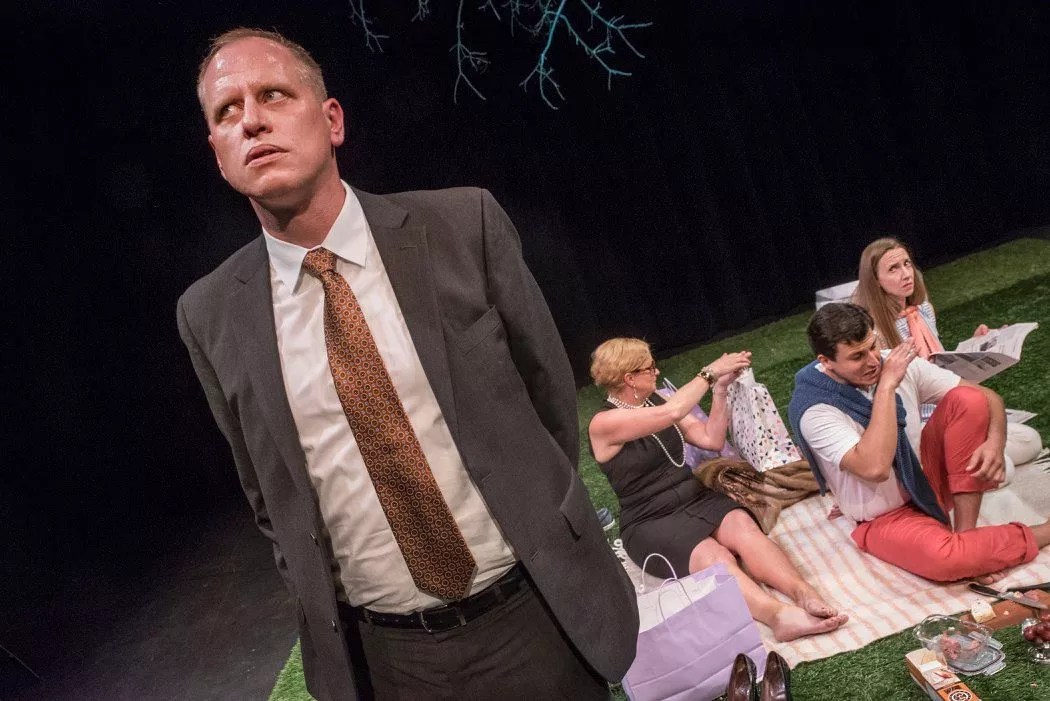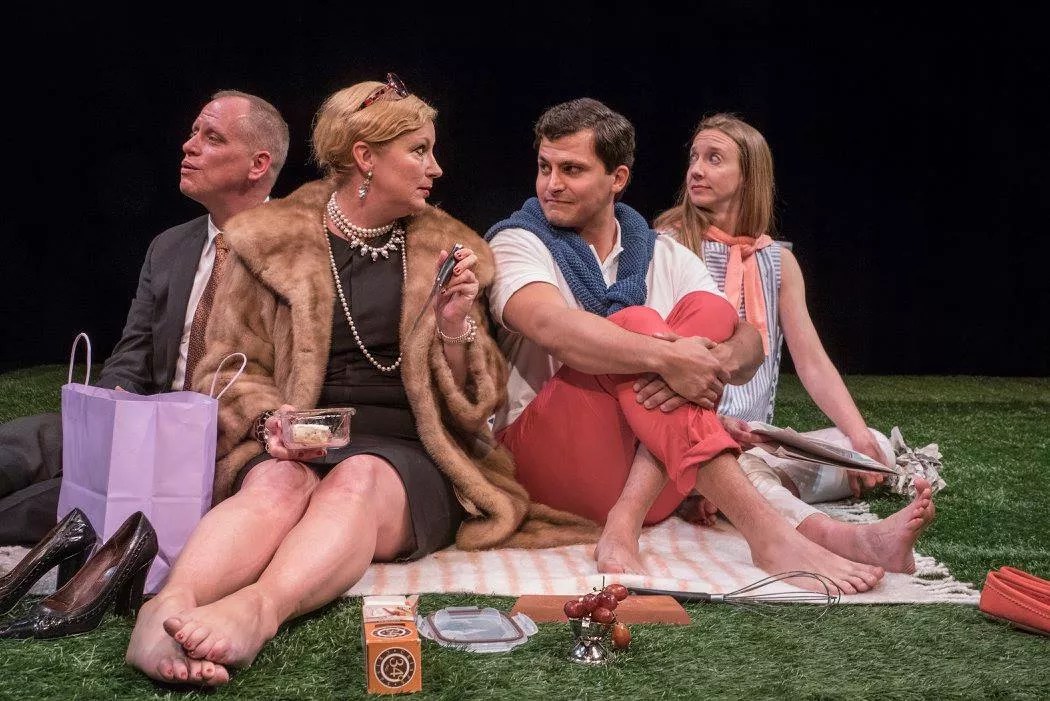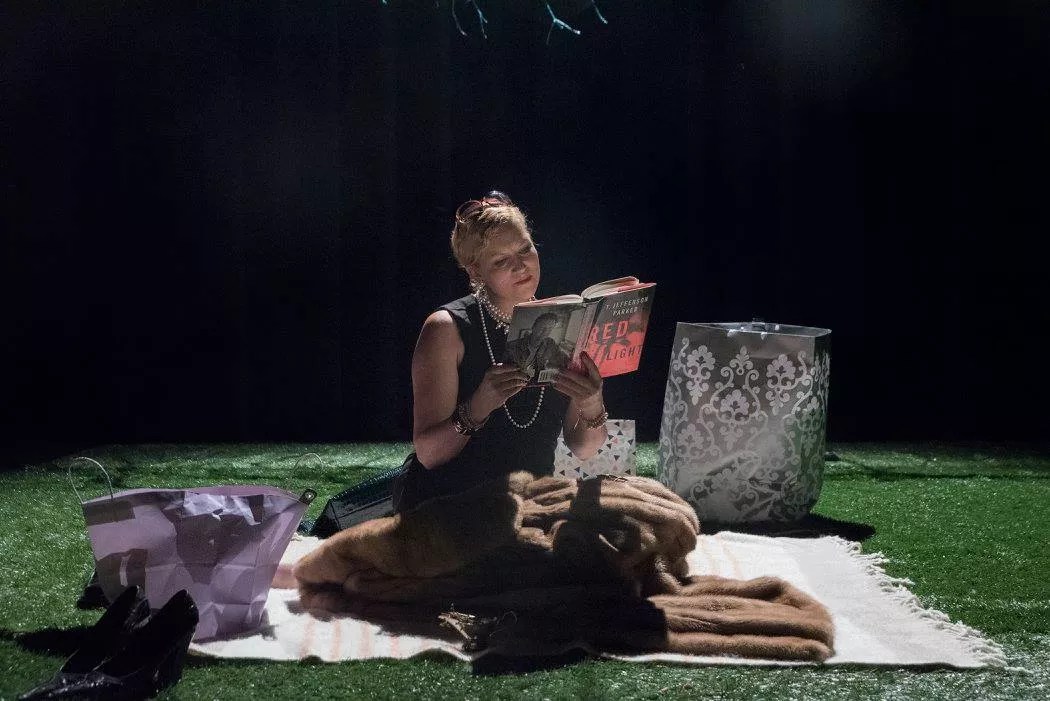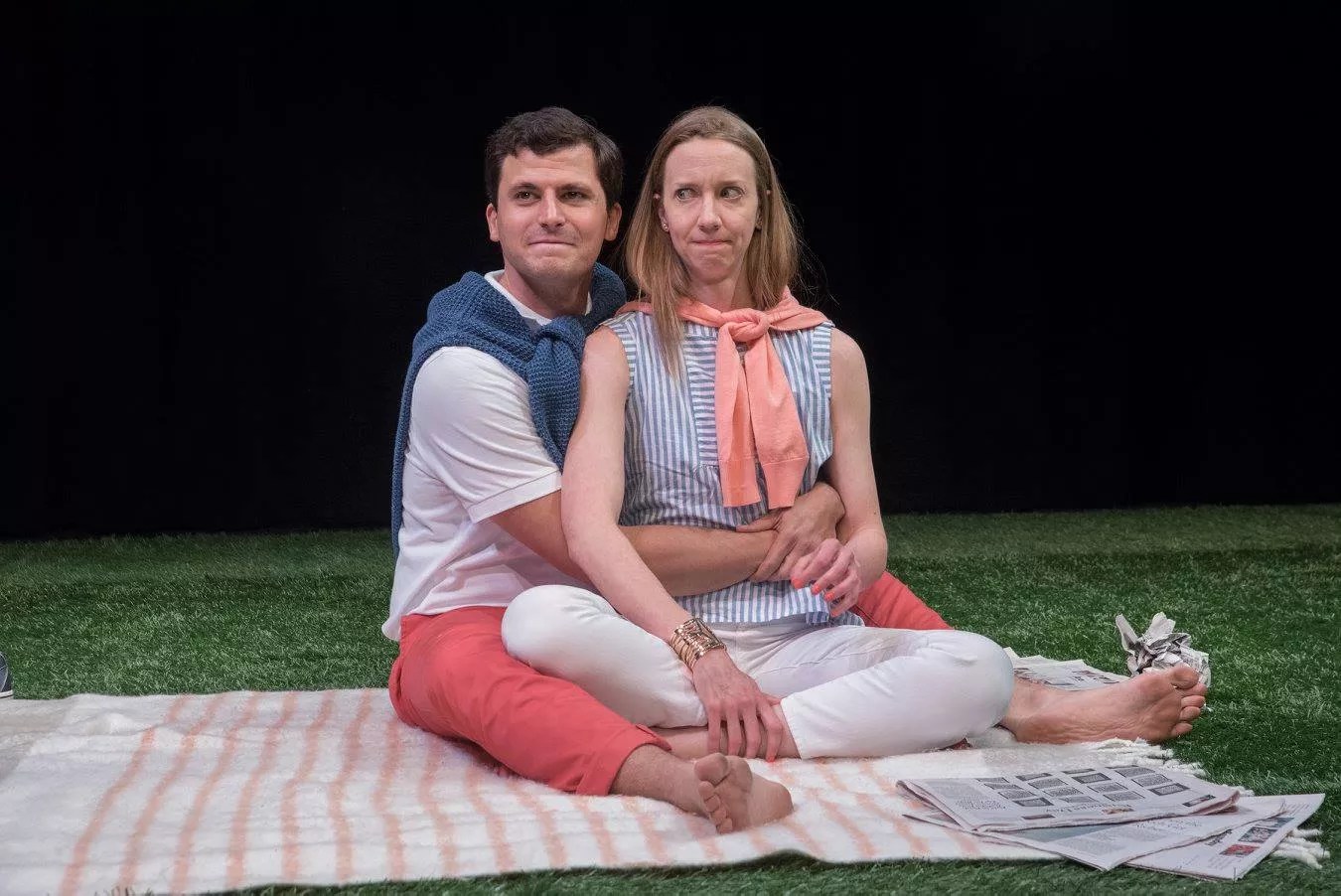
Michael Ensminger for Square Product Theatre

Audio By Carbonatix
Square Product Theatre artistic director Emily K. Harrison isn’t afraid to shake things up or try new things, if for no other reason than because it might attract an audience. So for its 2016/2017 season, the offbeat experimental Boulder company spiced things up with a running overarching theme of Power and Privilege, and an attendant series of community discussions that aren’t so much about the play on stage as they are about the underlying issues it brings to the surface.

Michael Ensminger, for Square Product Theatre
The talks started small and got big quickly with the company’s last event, when an SRO crowd packed the house for Being Black in Boulder, a race-driven conversation sparked by Damaris Webb’s performance, The Box Marked Black. “It was a great conversation, but it only just scratched the surface,” Harrison says. “If Boulder considers itself to be progressive, I have to say it still has problems. But it felt like a valuable start to something that could become an even bigger debate about race in Boulder.” Buoyed by the success of that panel discussion, Square Product is now turning to the subject of sexism in the workplace, inspired by the switched gender roles explored in its current show, She Rode Horses Like the Stock Exchange, by Amelia Roper, for its next talk, “Women at Work.”
Harrison chose to produce She Rode Horses a year ago, after Roper shared several scripts with her. “I asked permission to do this one, and given what happened in November, it’s especially timely,” she says. “The female character is smart, and she’s good at her job, but she’s frequently passed over for promotions that go to men who are not as qualified. Well, we certainly saw that happen in November, and now we’re all being punished for it.

Michelle McHugh Moore in She Rode Horses Like the Stock Exchange.
Michael Ensminger, for Square Product Theatre
“With this one, we could have again had a conversation about race, or some other specific demographic, but because I am a woman, I decided it was important to talk about how the system is against women – and men, in a different way,” Harrison continues. But she’s still pulled together a diverse panel: Jamaican-born theater educator Kathryn Ross, Portuguese drama-therapy student Lígia Batista Silverman, and Sam Bullington, an instructor in the Women and Gender Studies department at the University of Colorado Boulder who identifies as transgender.
“Mostly, we have really smart people on the panel,” Harrison adds. “But it’s not going to be a super-academic conversation. And we’re not aiming to exclude men in any way. This is not a man-bashing conversation. It’s about getting together and having a conversation about how these social structures are harmful to all of us.
“The play is about a lot of things, and many themes emerge out of it,” Harrison notes. “One is about the ideas we have culturally about defining women’s work as opposed to men’s work. In the play, my character is an investment banker, and my partner in the play is a nurse. When the male character, Henry, tells people he’s a nurse, he’s met with comments of, ‘Oh, you’re not a doctor.'”

Jihad Milhem and Emily K. Harrison in She Rode Horses Like the Stock Exchange.
Michael Ensminger, for Square Product Theatre
“‘Women at Work’ will focus on the fact that such patriarchal structures are oppressive to all of us, and not just women, but also to men. We need to talk about the invisible labor a lot of women do – the unpaid labor.
Often women might have a career but are still expected to do all the cooking and cleaning and be the primary nurturing parent. The cultural expectations are not the same, and men, as a counterpoint, are expected to be the breadwinners. If you’re a man and you want to go into a service field or you want to spend more time with your family, it’s a struggle.”
The “Women at Work” conversation will follow the performance of She Rode Horses at 9 p.m. Friday, April 28, at the Dairy Arts Center in Boulder. You don’t have to see the play to attend the panel discussion, and admission is free.
She Rode Horses runs through May 13 in the Carsen Theatre at the Dairy Arts Center; for a complete schedule and tickets, $15 to $24 (two-for-one on April 29 and May 3 and 4, and $15 for all seats on May 1), visit tickets.thedairy.org or call 303-444-7328. Learn more at square product online.